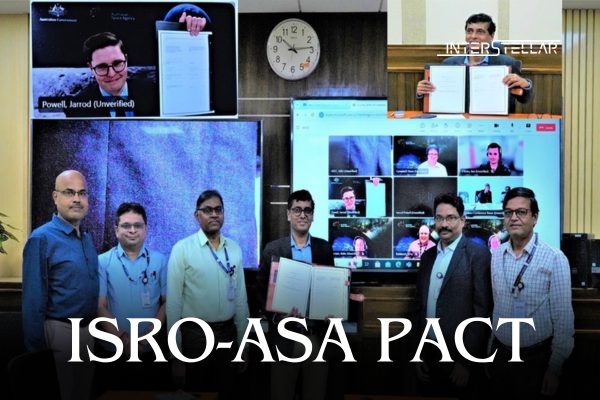ISRO and Australian Space Agency Sign Agreement to Boost Space Collaboration
The Indian Space Research Organisation (ISRO) and the Australian Space Agency (ASA) signed an Implementation Agreement (IA) on 20 November 2024, aimed at strengthening cooperation in space exploration. The agreement focuses on supporting crew and crew module recovery for ISRO’s ambitious Gaganyaan mission, a significant step in India’s human spaceflight programme.
The signing ceremony saw Shri DK Singh, Director of ISRO’s Human Spaceflight Centre (HSFC), represent ISRO in Bengaluru, while Shri Jarrod Powell, General Manager of ASA’s Space Capability Branch, signed on behalf of ASA in Canberra.
Supporting India’s Gaganyaan Mission
The Gaganyaan programme seeks to demonstrate human spaceflight capability in Low Earth Orbit. It involves launching an Indian Crew Module with up to three astronauts for a three-day mission and ensuring their safe return to Earth.
Under the IA, Australian authorities will collaborate with ISRO to provide crucial support for search and rescue operations. This includes contingency planning for crew and module recovery in the event of an ascent-phase abort near Australian waters. The agreement enhances the safety and reliability of the mission while fostering international partnership in advanced space exploration.
Strengthening Indo-Australian Space Cooperation
India and Australia share a strong strategic partnership, and this agreement adds a new chapter to their growing collaboration in the space sector. Both countries are committed to exploring current and future opportunities for joint space activities, underscoring their dedication to scientific and technological advancement.
About the Australian Space Agency
The Australian Space Agency plays a pivotal role in advancing Australia’s commercial aerospace sector. It coordinates domestic space initiatives, identifies opportunities for growth, and fosters international partnerships, including collaborations with ISRO.
This latest agreement highlights the shared vision of both agencies to contribute to space exploration and bolster global scientific progress.
With inputs from Reuters





